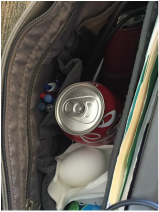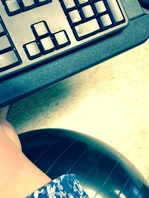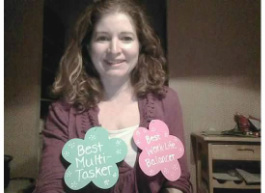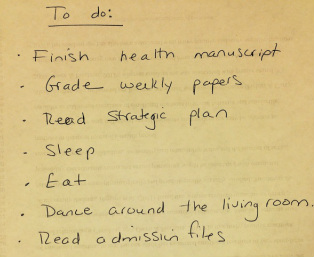I have lots of things I want to say. But I may have mentioned (in my last 10 or so posts) that I kind of, finished up a job after 18 years, packed up an office, sold (well, tried to) a house, bought a house, packed up a house after 14 years, unpacked a house, started a new, somewhat busy job, in a new state, at a new institution, and sent two kids off to middle school in a new state, for the first time. It's been a busy 4.5 months (case in point – I drafted this post before the outcome of the presidential election).
So, a quick post for now.
I am a full professor and a department head. That does not make work-life integration particularly easy. On the other hand, it likely makes it easier than being an assistant professor. Because generally, I am not afraid that my life-oriented decisions are going to lose me my job. Recently I had a dinner event to attend in Hartford, the same night my husband teaches late, but I was able to get a sitter and I made the choice to attend it. I make other choices toward the family balance, like having one afternoon a week when I'm home to meet the kids after school at the bus stop, and generally being home every evening by 6:00 to have dinner as a family (or shuttle someone to/from lessons of some sort before having dinner as a family).
I think that senior faculty women, particularly women in administrative roles, need to model work-life integration for more junior faculty women (and men). I do my best to do so. In my new office, there is a very large photo of my children. It is often the first thing that people comment on when they walk into my office. And that's okay, because they are a huge part of my life and I don't ever want to forget that, even when I'm working a long day. I want others to recognize they are a really important part of my life. I am conscious to explain when there are family reasons that I can't make a meeting at a regular time, such as a random day off of school, a doctor's appointment, or visiting the kids at school for the parent open house day. And I end faculty meeting at exactly 5:00 (if not earlier), even if we haven't finished, so no one has to feel uncomfortable being the one to sneak out early (though if they need to sneak out earlier, they are welcome to do so).
I don't think (I hope) that anyone believes I do not work hard enough at my job. I get things done and I stay up late working after the kids are asleep so that I can have a couple of hours with them in the evening.
I am not suggesting that female junior faculty must be equally explicit about their family or personal reasons for being absent from the workplace at times. But I do think that it's female senior faculty's responsibility to model this behavior, through words and actions, to demonstrate that we value family/personal life, and that's okay.
“The post Work-life integration: Show and tell first appeared on Eva Lefkowitz’s blog on November 30, 2016.”





 RSS Feed
RSS Feed
